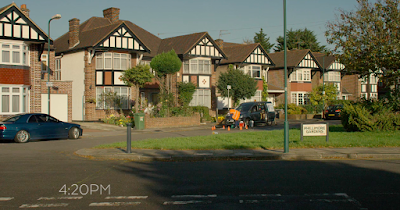ECHO
'Echo' is a short film, written by James Walker, and directed by Lewis Arnold. The narrative is inspired by a real life incident that was witnessed by the writer, James Walker, in central London. The narrative explores the devastating and prolonged effects that a father's death can have on his family. Arnold wanted the audience to "still feel like the character exists" after the end of the film. He also hoped that the audience would, "take ownership of that character in their own mind". In order to achieve this effect, Arnold had to carefully select the actress to take on the role. He therefore rightly selected Lauren Carse to play the character of Caroline. Carse would often have strangers approaching her whilst she was on set offering her help, as a result of her brutally convincing performance. The short film does cause the audience to interpret it in their own way, allowing them to ask questions such as, 'why is she reliving her experience?' and 'why was it repeated at the end?' I feel as though the biggest success of the film is the audience's confusion at how to sympathise with the main character. Are you supposed to feel pity? Or anger? Or both?
Movement and transport appears to be a motif throughout the film. Methods of transport such as, the bus, the train and the bike act as a constant reminder of what happened to Caroline's father. The idea of transport could also potentially convey the emotional journey that she is going through in dealing with the loss of her father. Camera movement is also used to convey this idea of a journey.
The dynamic use of camera when she is pretending to receive a call from the hospital, helps to create a sense of disorientation. This contrasts with the static use of camera when she is travelling home for example. This helps to emphasise a sense of being trapped, unable to escape from this memory, yet she is constantly trying to escape it. This idea of being trapped is also emphasised through the shots of her in her garden, through the fencing as it is suggested that she is mentally trapped. In the film, Caroline breaks the fourth wall, which suggests her desperately hopeless situation as she even reaches out to the audience for recognition.
Movement and transport appears to be a motif throughout the film. Methods of transport such as, the bus, the train and the bike act as a constant reminder of what happened to Caroline's father. The idea of transport could also potentially convey the emotional journey that she is going through in dealing with the loss of her father. Camera movement is also used to convey this idea of a journey.







Comments
Post a Comment